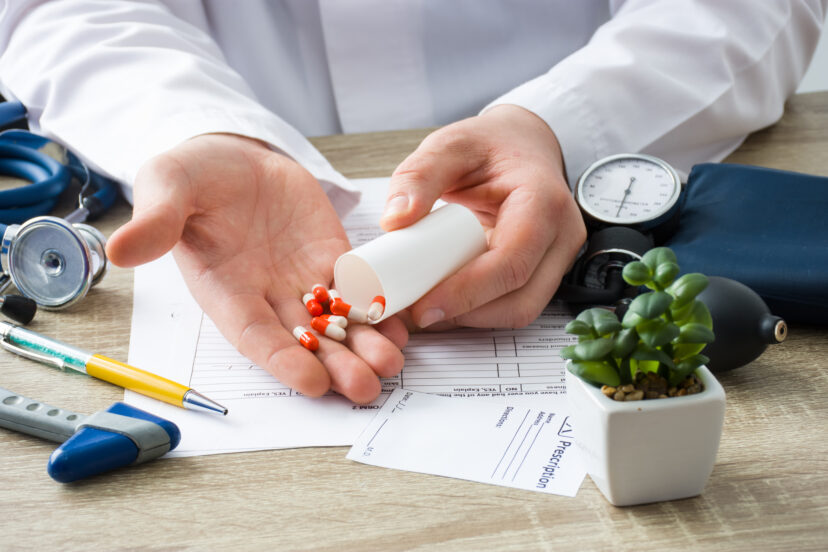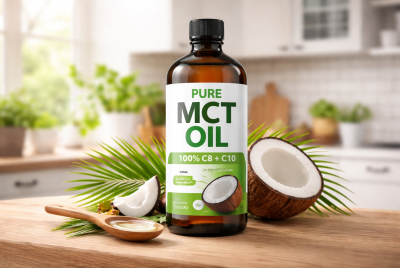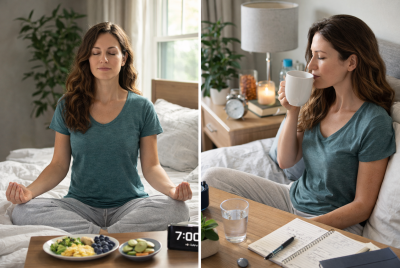Nootropic ADHD: A Natural Approach to Focus and Clarity
We may earn a commission for purchases made using our links. Please see our disclosure for more details.
It is never easy to live with ADHD and not be able to focus on one thing no matter how hard you try. Most people don’t understand the daily struggle of a person with ADHD. ADHD, at its core, is a neurological condition that manifests in struggles with focus, organization, and impulse control. But what if there’s a way to make your life a little bit easier? Yes, that’s possible with the help of nootropics. In this guide, you’ll learn and understand why nootropic ADHD can shed some light.
What Are Nootropics?
First off, what’s nootropics? Let’s put it this way… nootropics or “smart drugs” are brain boosters that aim to enhance memory, focus, alertness, and even boost energy levels. These brain boosters fall into three main types: synthetic substances, dietary supplements, and prescription meds. As far as ADHD is concerned, these cognitive enhancers engage with the brain through different pathways. It can help with ADHD and Alzheimer’s but unfortunately, it cannot reverse it. However, most people report a positive impact on their overall mental health.
The Connection Between Nootropics and ADHD
Many people with ADHD face have a hard time focusing and maintaining attention. It’s like you can’t stay in one place cause your mind is literally flying away and your body itches to move. And it sucks, I know. So, how can nootropics help? It helps in enhancing a person’s focus and concentration although it’s not officially approved for ADHD. I’ve read reviews online and people with ADHD say that it can somehow ease the symptoms which is why it’s worth the try, right?
Natural vs. Synthetic Nootropics
Nootropics generally fall into two categories: natural and synthetic.
- Natural Nootropics: This category includes herbs, plants, and vitamins, which appeal to those leaning toward a natural approach. Ginkgo biloba, Rhodiola rosea, and Bacopa monnieri are a few well-known examples.
- Synthetic Nootropics: Lab-created compounds that aim to mimic or boost brain functions. Examples include Modafinil and Adrafinil.
Why Consider Nootropics for ADHD?
Obviously, if you’re suffering from ADHD symptoms, you’ll search for things that can help you. Cause who wouldn’t want to stay focused all the time? Beyond traditional ADHD medications, nootropics are also worth the shot. It’s true that medications are much more effective than supplements but can sometimes bring along unwanted side effects like insomnia or mood swings. If you want to try a more natural option, then nootropics are your go-to.
Can Nootropics Replace ADHD Medication?
The answer is NO. Don’t you dare think of swapping out your prescriptions for nootropics!!! Nootropics can ease your symptoms but they’re not as effective as your medications. I’m sorry but it cannot reverse your condition. Sure, it’s worth the try but please, consult a medical professional first before jumping into the trend or making any shifts in treatment.
Popular Nootropics for ADHD Support
Here are a few popular nootropics often turned to for aiding focus and attention.
- L-Theanine
- This amino acid, found in green tea, fosters relaxation without making you sleepy, reducing stress and anxiety, which can benefit those with ADHD who experience high levels of tension.
- Bacopa Monnieri
- A staple in Ayurvedic medicine, Bacopa is known to enhance memory and mental clarity. It’s thought to help with focus, too.
- Ginkgo Biloba
- Ginkgo enhances blood flow to the brain and may support memory and focus.
- Rhodiola Rosea
- Used for fighting fatigue and lifting mood, Rhodiola might be helpful for those with ADHD who experience low energy.
- Omega-3 Fatty Acids
- Abundant in fish oil, omega-3s are essential for brain health and have shown promise in easing ADHD symptoms.
How Nootropics Work in the Brain
The brain operates like an intricate puzzle, and nootropics attempt to influence its function in various ways. Here’s a simple look at how they might aid focus:
- Boosting Neurotransmitters: Some nootropics increase dopamine, the brain’s key player in motivation and attention.
- Clearing Brain Fog: Other nootropics enhance blood flow, making it easier to focus and process information with clarity.
- Stress Reduction: Nootropics like L-Theanine reduce stress, creating a calmer state of mind that supports focus.
Scientific Findings on Nootropics and ADHD
Research highlights omega-3 fatty acids as beneficial for individuals with ADHD, as they often show omega-3 deficiencies that may impact attention and hyperactivity. Supplementation of EPA and DHA, essential omega-3s, has been shown to improve cognitive functions related to ADHD symptoms, making it a valuable part of treatment strategies Your calm mind assistant. Additionally, Phosphatidylserine (PS) is a phospholipid known for supporting brain neurotransmitters, particularly those affecting attention, focus, and memory, making it another promising option for ADHD management Mind Lab Pro®. For more information, see the full studies on Sensa.health and Mind Lab Pro.
Are Nootropics Safe?
As I’ve always said, generally, they are safe. But you folks should take it with caution. Remember, safety always, and will always come first no matter the situation or what drugs you take. Natural nootropics like Gingko Biloba, Rhodiola Rosea, and Ashwagandha are safe for many people. On the other hand, synthetic compounds (which are more intense) can have risks. Always research the nootropic drugs you plan to take especially if you have neurological conditions like ADHD. After all, it’s your brain we’re talking about!
Can Kids with ADHD Use Nootropics?
ADHD can be found in children so the use of supplements is popular among them too. However, experts usually approach nootropics cautiously regarding children. Kids’ brains are still forming, so sticking with well-studied ADHD treatments under a doctor’s supervision is very much preferred. Research says that for kids, nootropics like omega-3 fatty acids, iron, and magnesium might be beneficial.
Top Recommended Nootropics for ADHD Support
Here are some popular nootropics that are often recommended for those looking to support focus, memory, and clarity. While these aren’t cures for ADHD, many find them helpful as part of a balanced approach to managing symptoms.
- Mind Lab Pro – A well-rounded nootropic blend that includes ingredients like Bacopa Monnieri, L-Theanine, and Rhodiola Rosea, designed to support focus, memory, and stress reduction.
- Qualia Mind – A comprehensive nootropic stack with over 28 ingredients, including amino acids, vitamins, and adaptogens, aimed at improving mental clarity, focus, and energy.
- NooCube – Contains Alpha GPC, Bacopa Monnieri, and Huperzine A, which work together to enhance memory, focus, and cognitive performance, often appealing to those with attention struggles.
- Alpha Brain by Onnit – Known for supporting memory, focus, and processing speed, Alpha Brain contains a mix of Bacopa, Huperzine A, and L-Theanine, among other ingredients.
- Genius Consciousness – This nootropic powder blend includes Lion’s Mane Mushroom, Acetyl-L-Carnitine, and Alpha GPC, supporting mental clarity, focus, and energy for sustained productivity.
How to Start with Nootropics for ADHD
Ready to try nootropic ADHD? Alright, but take it slow! Start with a single nootropic to see how it affects you. Make sure to track any changes in your focus, mood, and energy levels. If you notice some side effects, please don’t hesitate to call your healthcare provider right away.
Creating a Nootropic Routine for ADHD
The secret to unlocking nootropics benefits is consistency. Especially if you want to see results faster! Make it a routine. Start your morning with your chosen nootropic (caffeine, gummies, or tea) then pair it with a balanced diet and regular exercise to support brain health. You still need to put in the work. Don’t just rely on nootropics, my friend.
Tracking Your Progress
I know it’s a hassle but keeping track of your progress is crucial. Why? So you know how your body reacts to specific nootropics and also your dosage intake. Recording improvements in focus, mood, or side effects can help you assess if a specific nootropic benefits your ADHD symptoms.
Combining Nootropics with Lifestyle Changes
Nootropics aren’t a magic fix. Their effects shine when combined with lifestyle habits that bolster focus and mental clarity, such as:
- Regular exercise
- Practicing mindfulness or meditation
- Prioritizing good sleep
- Eating a balanced, nutrient-dense diet
Common Myths About Nootropics and ADHD
- Myth: “Nootropics can cure ADHD.”
- Reality: Nootropics may help manage symptoms but aren’t a cure.
- Myth: “Nootropics are risk-free.”
- Reality: Many are safe, especially natural ones, but side effects and interactions are still possible.
- Myth: “More is better.”
- Reality: Moderation matters. Start with a low dose and increase only if needed.
A Word of Caution on Nootropics
Everyone’s brain chemistry is unique therefore, what works for me might not work well with you. But that’s okay!!! Don’t stress if you’ve read reviews online saying that Ashwagandha tea improves one’s memory while you still can’t feel any difference in your brain performance at all. Patience and openness to trying different options are essential. Oh, and don’t forget to have a healthy lifestyle, that’s way more important than supplements.
When to Consult a Professional
If you’re unsure about adding nootropics, or if your ADHD symptoms are complex, a consultation with a healthcare provider can help you weigh the pros and cons.
Potential Side Effects of Nootropics for ADHD
Some people may experience mild side effects such as:
- Headaches
- Upset stomach
- Insomnia
- Anxiety
Starting with the smallest possible dose can help minimize these risks.

Nootropics and ADHD: Realistic Expectations
In taking nootropics or any other supplements that promise enhanced cognitive functions, one should set their expectation. Keep your expectations grounded so you won’t be heartbroken when the results are not what you wished for. Sure, nootropics can be helpful but they’re unlikely to erase ADHD symptoms completely.
Summary
Nootropics is a natural option for people facing ADHD challenges and suffers maintaining focus. Although nootropic ADHD cannot reverse the condition itself, they can ease symptoms and make one’s life a little bit better. If paired with a healthy lifestyle, you can reap the benefits and see significant improvements. Always remember to start slow, consult a professional, and always keep safety in mind. Cheers to a better you!
FAQs About Nootropic ADHD
- Are nootropics legal for treating ADHD?
Most natural nootropics are legal, but they’re not FDA-approved for ADHD treatment. Stick to reputable sources when buying supplements. - Do nootropics work for everyone with ADHD?
No, results vary. Some people experience benefits, while others may see little to no change. - How long does it take to see the positive effects of nootropics?
Some feel the effects within hours, but for others, it may take weeks of consistent use. - Are there any nootropics that pair well with traditional ADHD medications?
Nootropics like L-Theanine and Omega-3s are often safe alongside ADHD meds, but check with your healthcare provider first. - Can I take multiple nootropics at once for ADHD?
Start with one, and if it’s beneficial, you might try adding another. But keep an eye on side effects and interactions.




